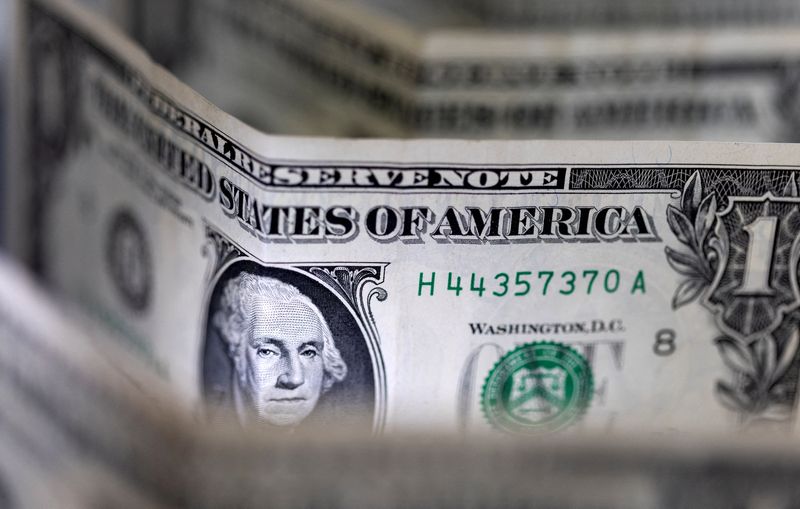Elastic launches GPU-accelerated inference service for AI workflows
By Gina Lee
Investing.com – The dollar was down on Thursday morning in Asia but near a two-year high as the U.S. Federal Reserve maintained its hawkish stance in its latest meeting minutes.
The U.S. Dollar Index that tracks the greenback against a basket of other currencies inched down 0.01% to 99.605 by 11:59 PM ET (3:59 AM GMT). The index hit its highest level since May 2020 overnight at 99.778.
The USD/JPY pair inched down 0.07% to 123.7.
The AUD/USD pair was down 0.43% to 0.7481, with the Australian Industry Group services index at 56.2 in March 2022. Separately, trade data for February 2022 also showed that exports grew 0% month-on-month, imports grew 12% month-on-month, and the trade balance was AU$7.457 billion ($5.63 billion).
The NZD/USD pair was down 0.36% to 0.6897.
The USD/CNY pair inched up 0.04% to 6.3622 and the GBP/USD pair inched up 0.06% to 1.3076.
Commodity currencies retreated from their recent highs as oil prices fell. The euro recovered to $1.0911 in Asian trading after hitting a one-month low of $1.0874.
"Many" policymakers are prepared to hike interest rates in 50-basis-point increments at coming meetings., the Fed’s minutes from its March meeting showed on Wednesday. The minutes also showed general agreement about trimming $95 billion a month from asset holdings which had ballooned during the COVID-19 pandemic.
Although the minutes’ content was widely within expectations, the Fed’s determination to begin as soon as May 2022 was a jolt to investors and is likely to keep the dollar elevated.
"The market has been slow to accept the reality that quantitative tightening is coming much sooner than previously expected," Spectra Markets’s Brent Donnelly told Reuters.
"This should keep stocks heavy and the dollar supported into the May 4th Fed meeting," he added.
Across the Atlantic, the European Central Bank (ECB) will release the minutes from its own latest meeting later in the day. Although expected to take a less hawkish stance than its U.S. counterpart, the ECB is must also strike the balance between managing high inflation and preventing a recession.
The Reserve Bank of Australia also struck a hawkish tone in its policy decision handed down earlier in the week, although it kept its interest rate steady at 0.1%.
However, China is taking the opposite approach, as it reiterated its intention to loosen monetary policy to help combat its latest COVID-19 outbreak and a slumping property market. The readout from a State Council meeting chaired by Premier Li Keqiang on Wednesday said that officials will use monetary policy tools at an “appropriate time” and consider other measures to boost consumption.
The broad selling of equities and other risk assets as higher interest rates loom also hurt cryptocurrencies. Bitcoin fell 5% overnight to $43,000.
